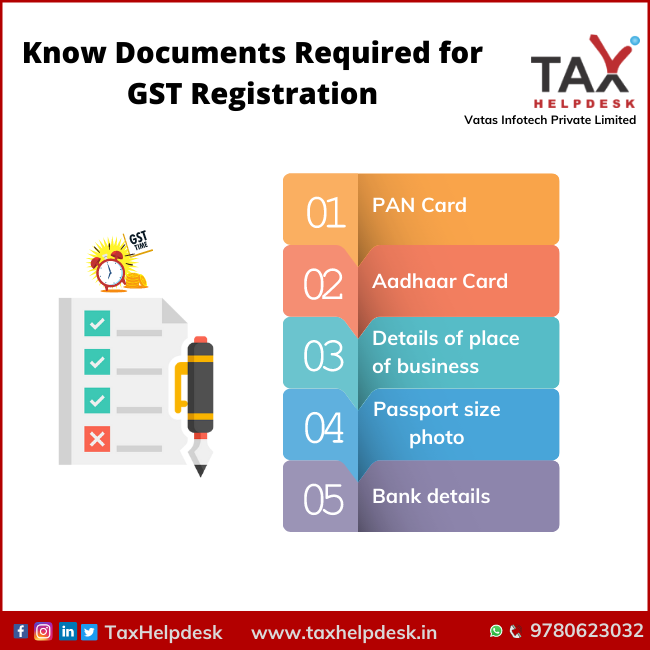Why Businesses Favor the most effective GST Registration Services in Singapore
From Begin to Finish: The Ultimate Roadmap to GST Enrollment for Businesses Seeking Financial Security
Navigating the intricacies of Item and Solutions Tax Obligation (GST) enrollment is a critical action for organizations aiming for monetary stability. From comprehending the basic concepts of GST to following post-registration guidelines, the process can appear intimidating at very first glance. Breaking down the roadmap right into convenient steps can simplify the enrollment trip for services looking to enhance their monetary standing. Allow's check out the necessary elements that make up this ultimate roadmap and discover how each phase adds to laying a strong foundation for monetary success.
Understanding GST Basics
Exploring the essential concepts of Goods and Services Tax Obligation (GST) is necessary for acquiring a detailed understanding of its implications on organizations and the economic climate. GST is a value-added tax levied on most products and services for residential intake. It has actually changed several indirect tax obligations that existed in the pre-GST period, simplifying the tax structure and enhancing ease of doing company in India. Under the GST system, both products and services are exhausted at a certain rate, which is figured out based upon their classification. Services are required to register for GST if their annual turnover goes beyond the threshold limitation established by the federal government. Input Tax Credit Scores (ITC) is a significant attribute of GST, enabling services to declare credit scores for tax obligations paid on inputs, lowering the general tax obligation concern. Comprehending the basics of GST is crucial for organizations to abide by tax regulations, handle their finances efficiently, and add to the country's financial growth by joining a clear tax system.
Eligibility Standards for Registration
To register for GST, companies must fulfill particular qualification standards developed by the federal government. The key qualification demand is that any kind of organization associated with the supply of items or solutions with a yearly accumulation turn over above the threshold restriction set by the authorities must sign up for GST. Since the present laws, the threshold limit for GST registration is a yearly aggregate turn over of 40 lakhs for services operating within a state, except for special classification states where the limit is 20 lakhs. In addition, certain services are needed to sign up for GST regardless of their turnover, such as interstate distributors, casual taxed persons, and organizations liable to pay tax under the reverse cost device. It is vital for companies to thoroughly examine their turnover and deal types to identify their GST registration obligations properly. Failing to register for GST when eligible can cause penalties and legal consequences, making it essential for companies to abide by the specified qualification standards.
Records Required for Registration
Having satisfied the eligibility criteria for GST registration, services should now guarantee they have the requisite papers in area to wage the registration procedure effectively. The documents needed for GST enrollment commonly include evidence of organization constitution, such as partnership deed, registration certificate, or incorporation certification for various sorts of companies. Furthermore, companies require to provide hop over to here documents establishing the major place of organization, such as a rental arrangement or electrical power expense. Frying pan card of business, as well as the identification and address evidence of promoters/partners/directors, are necessary for confirmation purposes. Savings account declarations, in addition to terminated cheques or a copy of the financial institution passbook, are required to validate the economic details provided during registration. Moreover, organizations need to have digital signatures ready for the accredited signatory. Making certain all these documents are arranged and easily offered will expedite the GST enrollment process, enabling organizations to adhere to tax regulations perfectly.
Step-by-Step Enrollment Refine
Commencing the GST enrollment procedure involves a collection of structured actions to ensure a smooth and certified enrollment for businesses. The primary step is to check out the GST website and complete the enrollment type with accurate details of the organization entity. Following this, the applicant receives a Short-term Referral Number (TRN) which is used to resume the application procedure if it's not finished in one go.
Next, all required papers according to the list given by the GST portal demand to be uploaded. These records typically include proof of organization enrollment, identity and address evidence of marketers, economic declarations, and organization entity's PAN card.

Post-Registration Conformity Guidelines

Final Thought
In verdict, companies looking for financial security should comprehend the basics of GST, fulfill qualification standards, collect essential files, adhere to the step-by-step enrollment procedure, and adhere to post-registration standards - Best GST registration services in Singapore. By adhering to these steps, organizations can guarantee conformity with tax regulations and keep monetary security in the future
Additionally, specific businesses are needed to sign up for GST regardless of their turnover, such as interstate vendors, informal taxed persons, and businesses liable to pay tax obligation under the reverse charge device.Having go to this web-site actually satisfied the eligibility standards for GST registration, services need to currently ensure they have the requisite documents in area to continue with the registration process effectively. The files required for GST enrollment typically include evidence of company constitution, such as partnership deed, registration certification, or unification certification for various types of businesses. Furthermore, companies need to supply documents establishing the primary area of company, such as a rental agreement or electrical power bill.Starting the GST registration procedure includes a collection of organized steps to make sure a smooth and compliant registration for companies.